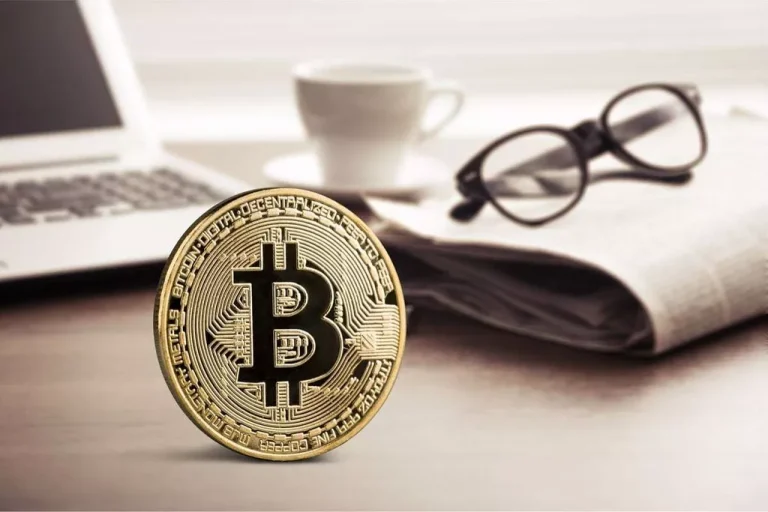Content
Mining is the process of validating transactions and creating a new block on the blockchain. Mining is conducted by software applications that run on computers or machines designed specifically for mining called Application Specific Integrated Circuits. No matter which wallet type you use, it’s important to implement additional security measures. Always ensure you’re using a strong password, enabling 2FA, and considering a VPN for extra protection when accessing your wallet online. Despite such considerations, mobile wallets remain a popular choice for users who https://www.xcritical.com/ need flexibility and convenience in managing their crypto on the go.

How Much Is $1 Bitcoin in US Dollars?
At the Anti-Money Laundering (AML) same time, having all your eggs in one basket may not be the safest bet, especially if it involves a large part of your net worth. Finally, there’s one last type of cryptocurrency wallet we should discuss, namely custodial wallets. All the examples we’ve gone over so far are non-custodial wallets, meaning that only the owner has access to the keys contained in the wallet.
What Is a Crypto Wallet? Types of Crypto Wallets to Know.

If you’re conducting a cross-chain swap, you’ll have to pay any required blockchain fees (generally, both networks will require transaction fees). If you’ve chosen Blockchain.com’s custodial service account, you’ll see an account tab in your app next to the DeFi Wallet tab, where you can access the custodial account’s features. To create a DeFi wallet, you’ll need to open how do crypto wallets make money an account on Blockchain.com.
What are private and pubic keys?
The DeFi wallet also lets you conduct cross-chain swaps using Squid, a cross-chain service provided by Axelar. At the time of writing, Squid allowed for cross-chain swaps across 37 Ethereum Virtual Machine-compatible blockchains, including Ethereum, Polygon, and Arbitrum. However, as we saw with the FTX scandal, it also leaves you open to being robbed blind by the exchange.
- Your wallet has a public address—called your public key—that is used when someone sends you a bitcoin, similar to the way they enter your email address in an email.
- Both the transaction size and the conditions of the network at the time of the transaction can greatly impact the size of the fee.
- Exodus is a multi-currency desktop wallet that allows you to store lots of different coins, such as Bitcoin, Litecoin and Dash, as well as various ERC-20 tokens.
- Crypto users also need a crypto wallet to store non-fungible tokens (NFTs).
- Just as you have a wallet for your physical money, a crypto wallet is your virtual wallet for digital money.
When looking at the different types of crypto wallets, keep in mind you aren’t limited to one type. For instance, many of the major hardware wallets integrate with mobile and browser-based wallets. You can also have some funds in a hot wallet and maintain the rest offline in a hardware wallet. That’s the advantage of cryptocurrency, it gives you complete autonomy over how you want your funds stored, managed and protected. Crypto wallets hold the user’s private key and information, while public keys are located on the blockchain.
Such an address is essentially a specific “location” on the blockchain to which coins can be sent. This means that you can share your address with others to receive funds. A place where cryptocurrency users can store, send and receive digital assets.
This might sound like a recipe for disaster (after all, if you lose your keys, you lose your crypto), but non-custodial wallets actually offer two big advantages. The process of using a crypto wallet for cryptocurrency transactions will depend on the type of wallet you have. Still, it’s generally a straightforward process, not unlike how you’d send any other currency digitally. If you choose this type of wallet, you’re essentially outsourcing your private keys to them. If you wish to access and send coins from this type of wallet, you log into your account and enter the location where you want to send your crypto. When you buy cryptocurrency, the company you purchased it through probably gave you a wallet to hold the digital coins.

It’s a piece of paper where you’ve written down your public and private keys. As with anything paper, it has an advantage in that it’s not connected to the web and thus can’t be hacked — a big problem for crypto investors. For example, a lot of software wallets (and we’ll talk more about the types of wallets in the next section) will also track what cryptocurrencies you own and how much you have of each. There are wallets that’ll also tell you how much your crypto is worth in real-world money, and help crypto users track it with graphs and figures.
Without proper security measures, like a strong password or two-factor authentication (2FA), your digital assets may be more susceptible to attack. Additionally, certain features may require constant internet connection, which can be a drawback in areas with poor connectivity. However, while they offer convenience, they also have some security drawbacks. In many cases, your private keys are stored on third-party servers, and if these servers get compromised, your funds could be at risk. IThere are several optional security measures that are not required but can help secure wallets against outside attacks.
Early crypto users would write or type their keys on paper, which they called paper wallets. These evolved to include the keys and QR codes so wallets on mobile devices could scan them. However, paper wallets are easily damaged or lost, so many crypto owners do not use them anymore.
A crypto wallet stores the public and private keys necessary to send, receive and store cryptocurrency. While crypto wallets are essential and critically important for Web 3.0 and cryptocurrency, there is some risk to custodial and noncustodial types of wallets. The greatest risk for all types of wallet is the potential for theft, fraud or cyber attack. Non-custodial wallets, on the other hand, allow a user to retain full control of their funds, since the private key is stored locally with the user. For larger amounts, it’s recommended that a user withdraws the majority to a crypto wallet, whether that be a hot wallet or a cold one. This way, they retain ownership of their private keys and have full power and control over their own finances.
These resources can guide you through everything from setting up your wallet to completing your first transaction, making the learning curve much easier to manage. Some wallets go even further with biometric authentication, which uses fingerprint or facial recognition to secure access. For which purpose or what kind of people is the crypto exchange most useful. For newcomers, the initial setup might also feel a bit tricky, as it involves following careful security steps to ensure your assets are safe. It’s important to note that the Blockchain DeFi Wallet does not charge additional fees on top of the network fees to pay miners and validators.
The token is digital (or virtual), and your public key is used to assign it to you. Ownership is transferred when transactions are made to another person’s public key. You use your wallet, the mobile application, to send or receive bitcoin. It’s also worth considering whether a crypto wallet offers multi-chain support, which allows you to interact with multiple blockchain networks.
The safest type of crypto wallet depends on what you’re trying to protect against. Each kind of wallet exposes you to different risks, even as it protects against some risks. While some of the top cryptocurrency exchanges are, indeed, based in the United States (i.e. KuCoin or Kraken), there are other very well-known industry leaders that are located all over the world. For example, Binance is based in Tokyo, Japan, while Bittrex is located in Liechtenstein. If you have read it from start to finish, you should now have a really good understanding of what a wallet is, how the technology works and what it can be used for. The latter is the newer wallet version, coming equipped with advanced features and improved functionality.
If you feel confused, think about it this way – imagine that you want to protect your physical, traditional money. You store it in a safe – one that has a digital lock that can be accessed by entering the right combination of numbers. Now, you write that combination down, on a slip of paper, and put it in your wallet. In this section, we’re going to answer the question – what is a crypto wallet?

